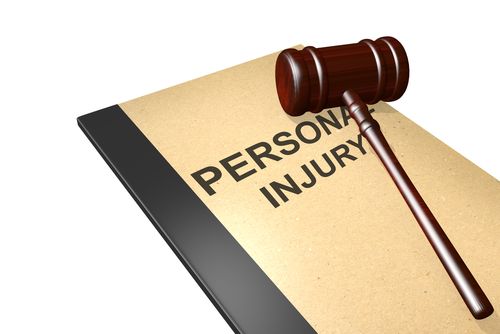Pursuing an insurance claim can feel like navigating a labyrinth of jargon, clauses, and fine print.
A common question you might ask is, “Do I have the right to refuse the insurance company’s offer?”
Your rights determine how you deal with these companies and the outcome of your insurance claim. An experienced personal injury attorney can handle your case and fight for the justice you deserve.
Understanding Insurance Claims
An insurance claim is a formal request by a policyholder to an insurance company for compensation based on the terms of the insurance policy. Upon receipt of the claim, the insurer will then review it to determine whether it falls within the policyholder’s coverage.
Types of Insurance Claims
Insurance claims include accidents involving cars, homeowners, health, life, and businesses. Each claim type involves a different process and set of rules.
How to File an Insurance Claim
Filing an insurance claim typically starts with the immediate reporting of the incident. You then gather and submit the necessary documents and information to the insurance company. This generally includes an explanation or proof of your losses, such as photographs, receipts, or a police report.
The Role of an Insurance Adjuster
Once you file a claim, an assigned insurance adjuster will investigate the details, evaluate your loss, and determine the settlement amount. Remember that these adjusters work for the insurance company, and it’s their job to save the company money. The initial offer might not reflect the actual value of your loss.
Understanding Insurance Claims
An insurance claim is a formal request by a policyholder to an insurance company for compensation based on the terms of the insurance policy. Upon receipt of the claim, the insurer will then review it to determine whether it falls within the policyholder’s coverage.
Types of Insurance Claims
Insurance claims include accidents involving cars, homeowners, health, life, and businesses. Each claim type involves a different process and set of rules.
How to File an Insurance Claim
Filing an insurance claim typically starts with the immediate reporting of the incident. You then gather and submit the necessary documents and information to the insurance company. This generally includes an explanation or proof of your losses, such as photographs, receipts, or a police report.
The Role of an Insurance Adjuster
Once you file a claim, an assigned insurance adjuster will investigate the details, evaluate your loss, and determine the settlement amount. Remember that these adjusters work for the insurance company, and it’s their job to save the company money. The initial offer might not reflect the actual value of your loss.
Common Reasons for Insurance Claim Denials

Insurance companies deny claims for several reasons.
One common reason for a claim denial is a lapse in the insurance policy. If there was a gap in your coverage at the time of the incident, the insurer may deny your claim.
Another common reason is the perceived lack of necessity for a particular treatment or procedure. In health insurance cases, for instance, if the insurance company believes you don’t need a specific treatment, they may deny the claim. In such cases, a lawyer can provide comprehensive medical documentation proving the necessity of the treatment.
Insufficient documentation can also result in a claim denial. A lack of factual information may support the claim, such as insufficient photographic evidence from the accident or the absence of a police report. Provide as much substantiating documentation as possible when submitting your claim.
Every insurance policy excludes specific events. The insurance company will likely deny your claim if the incident or damages fall under these exclusions.
Your lawyer can mitigate potential issues and improve your chances of a successful claim.
The Right to Refuse an Insurance Company’s Offer
You may refuse the initial offer made by the insurance company. Insurers often make a low initial offer, hoping you will accept it to close the claim quickly. You do not have to settle, however.
You have the right to understand the details of your policy and the insurance company’s reasons for their offer. You can ask for a detailed explanation for an insurer’s unclear or incorrect calculations.
Remember that you have the right to legal representation. An attorney can usually negotiate a better settlement, especially in complex cases or scenarios where the insurance company is being difficult. They can handle communications with the insurer, reducing stress and advocating for your interests.
Knowing and asserting your rights empowers you to stand your ground and seek a fair and reasonable settlement.
Negotiating With Insurance Companies: What It Can Mean for You
After you refuse an insurer’s offer, the next step is negotiating a more suitable settlement. This process can feel overwhelming, particularly without the appropriate knowledge and strategies.
The Importance of Negotiation
Settlement negotiations are a crucial part of the personal injury claims process. An insurance company’s initial offer may not adequately cover your losses, making it necessary to negotiate for a more equitable deal. The initial settlement offer is typically a starting point, and it’s up to you to seek fair and just compensation that aligns with your needs and circumstances.
Tips and Strategies for Successful Negotiation
Preparation is critical to successful negotiation. Gather all necessary documents, such as medical bills, repair estimates, and evidence related to your claim. This factual information is essential to justifying your compensation amount.
Remain patient and persistent. Insurance companies may rely on your perceived need for immediate settlement and pressure you into accepting a lower amount. Approach negotiations with a clear settlement range in mind so you have a framework within which to work.
The Role of a Lawyer in Negotiations
Legal counsel plays a significant role in negotiations. A skilled attorney can provide invaluable guidance, explain the complexities of your claim, evaluate offers, and negotiate on your behalf. They can also protect your rights, making the process less daunting and more manageable.
A lawyer can tilt negotiations in your favor, giving you the empowerment and confidence to seek a favorable outcome.
Protecting Your Rights in Negotiations
When dealing with insurance claims, a lawyer will safeguard you from potential exploitation and navigate the claim process confidently.
Overview of Your Legal Rights
There are laws that protect policyholders from unfair practices by insurance companies. Your policyholder rights include the right to a timely response to your claim, the right to know why an insurance company denied your claim, and the right to appeal a denial decision.
In most states, insurance companies have a legal obligation to act in good faith, meaning they must handle your claim promptly, fairly, and without deception.
Laws and Regulations Governing Insurance Claims
The laws and regulations governing insurance claims may vary depending on your state and the type of insurance policy you hold. All states have Unfair Claims Settlement Practices Acts that prohibit insurance companies from engaging in deceptive or unfair actions when dealing with claims. These laws protect policyholders and ensure that insurance companies fulfill their contractual obligations.
How to Protect Your Rights
Protecting your rights during the claim process involves being proactive and staying well-informed. Keep detailed records of all your interactions with the insurance company, including the dates and content of phone calls or written correspondence. If the insurance company denies your claim, it must provide a valid reason. In such cases, it’s within your rights to challenge the decision.
Regularly review your insurance policy to familiarize yourself with its terms and conditions. This will allow you to assert your rights should any conflicts arise. An attorney with experience in insurance law can protect your rights and guide you through the process.
A lawyer can negotiate with insurance companies and handle disputes effectively, increasing your chances of obtaining a fair settlement.
When to Hire a Lawyer

Legal advice will ensure you get the best possible outcome for your claim.
The Importance of Legal Representation
Do not underestimate the value of legal advice and guidance in insurance claims. It can significantly improve your odds of receiving a fair and favorable settlement.
A personal injury lawyer has the knowledge, experience, and skills to navigate the complex legal landscape that insurance claims typically involve. They understand the tactics insurance companies may use to avoid paying a fair amount and can protect your rights as a policyholder.
Situations Where You Need a Lawyer
You need legal representation:
- For an unfair claim denial: An attorney can explain the reason for your claim denial and the steps you can take to challenge the decision.
- If you feel the settlement offer is too low: A lawyer can negotiate a better settlement, ensuring you get the compensation you deserve.
- If your insurance company is delaying or giving you the runaround: This can be highly frustrating, and a lawyer can speed up the process and hold the company accountable.
- If the claim involves significant injuries or damages: High stakes require experienced legal guidance.
How a Lawyer Can Resolve Insurance Claim Disputes
A lawyer can be invaluable during insurance claim disputes. They can evaluate the terms of your insurance policy and explain your rights and options. They can also handle negotiations with the insurance company on your behalf, taking the stress out of the process. In cases where a lawsuit becomes necessary, a lawyer can represent you in court.
A knowledgeable insurance claims lawyer advocating for your interests can significantly increase your chances of a successful outcome. They can provide advice relevant to your specific situation, protect your interests, and guide you through the complexities of an insurance claim.
Knowing you have competent legal support will give you the confidence and peace of mind to stand up to insurance companies and seek the best possible outcome.
Contact an Experienced Personal Injury Accident Attorney Today
Taking control of your insurance claim process is crucial in ensuring you receive the compensation you deserve. Understanding the fundamentals of insurance claims, your right to refuse an insurance company’s offer, and the importance of effective negotiation is critical to a fair settlement. Knowing your legal rights and when to seek legal advice can protect you against potential exploitation.
Dealing with insurance companies and their offers may feel daunting and overwhelming. Remember that there are laws and regulations that protect you and keep insurance companies accountable. Exercising your rights wisely and seeking professional legal advice when necessary to ensure a fair outcome is crucial.
While insurance claims can be complex, understanding your rights and obtaining competent legal representation when necessary can improve the likelihood of a favorable outcome.

Whether you’re facing an insurance claim denial or a lowball settlement offer, you should not navigate the process alone.
An experienced legal professional can provide vital support through every stage of the claim process. Your rights matter. Seek support to protect them. You are not alone in this journey. Contact an experienced Long Island personal injury Lawyer today.








